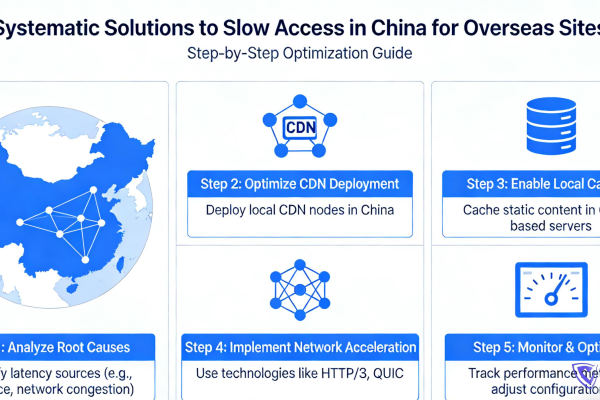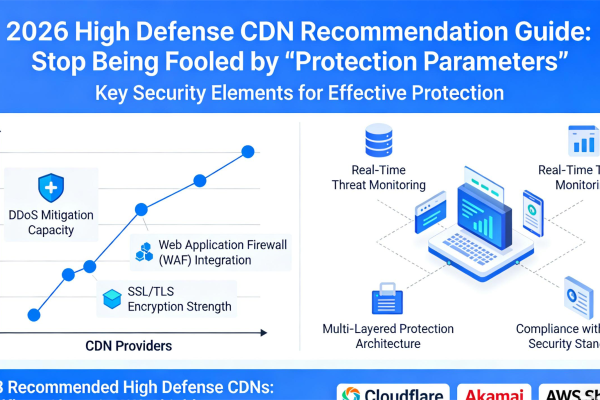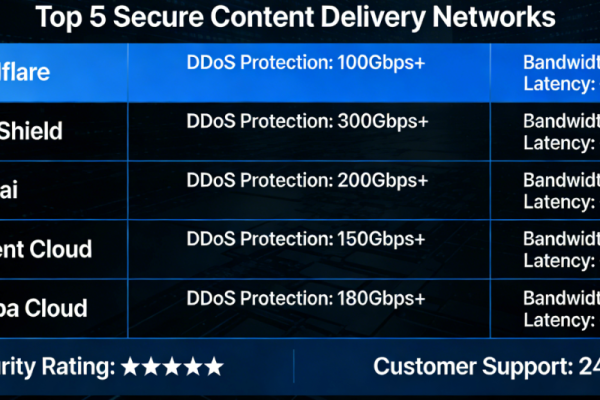Recommended Overseas CDN Billing Methods: Bandwidth-Based, Traffic-Based, or Fixed Plans?
Today, the team at CDN07 breaks down overseas CDN billing models: a comparison of the pros and cons of bandwidth-based, traffic-based, and fixed plans. Drawing on real-world experiences with Cloudflare, Akamai, Fastly, and CDN07, we’ll show you how to choose the most cost-effective solution.

After running websites for over a decade, I’ve noticed an interesting trend:
Newcomers to CDNs are often confused by "pricing."
All overseas CDNs may seem similar at first glance—some advertise "bandwidth-based billing,"
others "traffic-based billing," and still more offer "fixed plans with unlimited domains."
They look comparable upfront, but the final bills can differ by several times.
I’ve stumbled into my fair share of pitfalls too:
Once, I used a traffic-based CDN for an API project. A sudden traffic attack hit,
and the bill shot up to four figures. That’s when it clicked:
The CDN billing method matters more than the price itself.
In this article, I’ll dive into the three main overseas CDN billing models from a practical perspective,
helping you understand their logic, costs, pros and cons,
and why more and more projects are shifting to "fixed-plan" high-anti-DDoS CDN solutions.

I. Why CDN Billing Methods Are So Confusing
Unlike servers—where you simply pay a "monthly fee"—
a CDN is essentially a service that combines "traffic routing + caching + protection."
As a result, different providers charge based on factors like usage volume, bandwidth peaks, protection resources, and node occupancy.
The problem?
- Some charge by maximum bandwidth peak—meaning a single occasional peak can drive up your costs;
- Some charge by traffic—one attack can blow your bill out of the water;
- Others hide extra fees, like charges for "HTTPS request counts" or "log export volumes."
This leads many users to think they’re getting a good deal initially,
but soon realize the costs work out very differently in practice.
II. Detailed Breakdown of the Three Main Overseas CDN Billing Methods
1️⃣ Bandwidth-Based Billing
This is the oldest billing method for traditional CDNs,
used by major players like Akamai, AWS CloudFront, and Alibaba Cloud International.
Billing Logic:
You’re charged based on the "maximum bandwidth peak" you use.
For example, if your contract specifies 100Mbps of monthly bandwidth, you’ll pay extra for any usage beyond that.
Pros:
- Controllable costs (as long as traffic stays stable);
- Stable performance during peak hours.
Cons:
- Fixed budget, lacking flexibility;
- High costs for small-scale projects;
- Risk of bill spikes during attacks.
Use Cases: Large enterprises, video streaming platforms, financial services—clients that prioritize budget predictability.
2️⃣ Traffic-Based Billing
Most international CDNs like Cloudflare, StackPath, and Fastly use this model.
Billing Logic:
You’re charged based on "actual traffic used."
For example: $0.10 per GB.
It sounds cost-effective, but unexpected traffic surges—from crawlers, CC attacks, or sudden spikes in download traffic—
can result in bills that make you question everything.
Pros:
- Pay-as-you-go flexibility;
- Friendly for low-traffic projects;
- Low entry barrier for beginners.
Cons:
- Extremely high attack risk;
- Volatile traffic makes costs hard to estimate;
- Unpredictable budget.
Use Cases: Small websites, blogs, low-traffic content sites.
I once used Cloudflare’s traffic-based billing for a lightweight API project.
After two days of CC attacks, the bill jumped from $200 to $1,800.
That experience taught me a lesson: I’ll never use pure traffic-based billing for core business again.
3️⃣ Fixed Plan Billing
This is the model I primarily use now—CDN07, for example, offers this type of billing.
Billing Logic:
Fixed price = Fixed bandwidth + Protection + Node access rights.
For example:
- Basic Plan: 50Gbps protection, $800/month;
- Business Plan: 200Gbps protection, $2,000/month;
- Enterprise Plan: 1.5Tbps protection, $5,000/month.
No extra charges—regardless of traffic surges or attack frequency—as long as you don’t exceed the plan’s protection bandwidth.
Pros:
- Stable costs and predictable budget;
- Includes high-level protection (no fear of attacks);
- Fast onboarding, ICP filing-exempt, real-name verification-exempt;
- Supports crypto payments like USDT/BTC.
Cons:
- Slightly higher initial cost than free CDNs;
- May be wasteful for low-traffic projects.
Use Cases:
API services, ad redirect pages, cross-border e-commerce standalone sites, Web3 nodes, Push services, etc.

III. Pros & Cons of Each Model at a Glance
| Model | Pros | Cons | Target Users |
|---|---|---|---|
| Bandwidth-Based | Stable, enterprise-grade support | High cost, inflexible | Large enterprises, video platforms |
| Traffic-Based | Flexible, low cost | High attack risk, unpredictable | Small websites, test projects |
| Fixed Plan | Controllable costs, strong protection | Slightly higher initial cost | Medium-to-high traffic, protection-focused projects |
As the table shows, each model has its own use cases.
But if you’re running cross-border access, filing-exempt projects, or attack-prone websites,
fixed-plan CDNs are by far the most worry-free option.
IV. Real-World Experience: Billing Differences Across CDNs I’ve Used
Starts with a free tier, uses traffic-based billing, has a large number of nodes, but its defense strategies are relatively conservative.
Pros: Low cost and easy to get started. Cons: Bill control becomes difficult after an attack.
💼 Akamai
Charges by bandwidth peak, focuses on enterprise services, offers strong protection but at a high cost.
Great for large companies, not ideal for small-to-medium teams.
⚙️ Fastly
Bills by traffic + request count. Flexible but complex—hard for small projects to track costs accurately.
🧱 CDN07
Fixed-plan model: one price includes nodes + acceleration + protection.
Supports USDT and BTC payments, exempt from ICP filing and real-name verification,
and offers excellent speed for mainland China users accessing overseas networks (via CN2 optimized routes).
My actual tests showed:
When accessing Hong Kong nodes, Cloudflare had an average latency of 120ms,
while CDN07 stayed consistently under 40ms.
Even when hit with a 50Gbps attack, my site kept running, and the bill didn’t increase a cent.
This gets to the heart of "cost-effectiveness"—
It may seem more expensive upfront, but it’s actually the cheapest option in the long run.
V. Why Fixed Plans Are Becoming a Trend
More CDN providers are entering the market each year, but the ones that thrive
are almost all shifting toward "fixed plans + intelligent protection."
The reasons are simple:
1️⃣ Higher attack frequency — Traffic attacks are now common, making traffic-based billing risky;
2️⃣ Stricter compliance requirements — Users want to avoid real-name verification, ICP filing, and paperwork;
3️⃣ Growing cross-border demand — Mainland China users face slow overseas access, requiring optimized routes;
4️⃣ Changing payment preferences — More teams are using USDT or BTC for payments.
These are exactly CDN07’s core advantages:
- Filing-exempt onboarding (takes effect within 5 minutes);
- Supports USDT / BTC payments;
- Flexible plan upgrades to handle sudden traffic surges;
- Nodes use CN2 optimized routes for low latency;
- Includes an AI protection system—no extra fees for attack defense.
From a cost-effectiveness and long-term operation perspective,
fixed plans aren’t just cheaper—they’re also more stable and secure.

VI. Recommended Billing Models by Project Type
| Project Type | Recommended Billing Method | Reason |
|---|---|---|
| Cross-Border E-Commerce Standalone Site | Fixed Plan | Stable access, high anti-blocking needs |
| API Relay / Aggregation Interface | Fixed Plan | CC attack protection, controllable traffic |
| Web3 Projects / Wallet Nodes | Fixed Plan | Anonymous deployment, crypto payments |
| Video / Live Streaming | Bandwidth-Based | High-concurrency streaming needs |
| Content Sites / Blogs | Traffic-Based | Low cost, low traffic |
| Corporate Websites | Bandwidth-Based | Contractable, high compliance |
If you’re just running a showcase website, a free CDN is enough;
but if you’re managing ads, APIs, or cross-border business,
a fixed-plan CDN is the only solution that lets you "sleep at night."
VII. Understanding Billing Models Means Truly Understanding CDNs
Many people choose a CDN based solely on the price tag,
but smart website owners look deeper:
For this price, am I paying for stability, speed, or peace of mind?
Bandwidth-based plans are expensive but predictable;
Traffic-based plans are cheap but risky;
Fixed plans may seem pricey, but they offer the best value.
After using CDN07 for so long,
my biggest takeaway is:
It brings CDNs back to their core purpose—keeping websites stable, fast, attack-resistant, and hassle-free.
If you’re on the fence about which billing method to choose,
start by evaluating your business type,
then try a "fixed plan + high protection" model like CDN07.
You might end up like me—never worrying about unexpected bill spikes again.
👉 Learn More: https://www.cdn07.com
Share this post:
Related Posts

A Systematic Approach to Fixing Slow China Access for Overseas Websites
If your overseas site loads slowly in China, the problem usually isn't your server. This guide expla...

The 2026 Guide to DDoS-Protected CDNs: Don't Get Blinded by the Numbers
Looking at specs alone is a trap. This guide breaks down how to choose a DDoS-protected CDN in 2026...

Hong Kong High-Defense CDN Recommendations (2026 Latest Edition)
Not all Hong Kong high-defense CDNs can withstand attacks. This article compares the protection stre...
